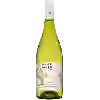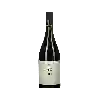
Domaine de GensacPesade
This wine is a blend of 3 varietals which are the Malbec, the Tannat and the Merlot.
This wine generally goes well with poultry, beef or game (deer, venison).
Food and wine pairings with Pesade
Pairings that work perfectly with Pesade
Original food and wine pairings with Pesade
The Pesade of Domaine de Gensac matches generally quite well with dishes of beef, lamb or game (deer, venison) such as recipes of beef with cider, berber giblet frying pan or duck legs with honey and orange.
Details and technical informations about Domaine de Gensac's Pesade.
Discover the grape variety: Malbec
Malbec, a high-yielding red grape variety, produces tannic and colourful wines. It is produced in different wine-growing regions and changes its name according to the grape variety. Called Auxerrois in Cahors, Malbec in Bordeaux, it is also known as Côt. 6,000 hectares of the Malbec grape are grown in France (in decline since the 1950s). Malbec is also very successful in Argentina. The country has become the world's leading producer of Malbec and offers wines with great potential.
Last vintages of this wine
The best vintages of Pesade from Domaine de Gensac are 2012, 2011, 2009
Informations about the Domaine de Gensac
The Domaine de Gensac is one of of the world's greatest estates. It offers 17 wines for sale in the of Gers to come and discover on site or to buy online.
The wine region of Gers
The wine region of Gers is located in the region of Comté Tolosan of Vin de Pays of France. Wineries and vineyards like the Domaine de Gensac or the Domaine Francois Dulac produce mainly wines white, red and pink. The most planted grape varieties in the region of Gers are Cabernet-Sauvignon, Tannat and Colombard, they are then used in wines in blends or as a single variety. On the nose of Gers often reveals types of flavors of honey, earth or tree fruit and sometimes also flavors of tropical fruit, green apple or cheese.
The wine region of Comté Tolosan
Comte Tolosan is a PGI title that covers wines produced in a large area of Southwestern France. The PGI basin encompasses 12 administrative dePartments and is home to a wide range of appellations d'origine contrôlée (AOC) such as Jurançon, Cahors and Armagnac. The IGP label provides a geographical classification for wines that are not classified for AOC level appellations due to Grape variety or winemaking style. The region is part of the Aquitaine basin - the plains that lie between the Pyrenees, the Massif Central and the Atlantic Ocean to the west.
The word of the wine: Wrapped
Said of a wine rich in alcohol, but in which the mellowness dominates.











